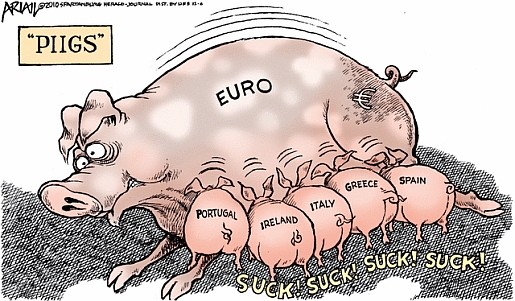
The markets have been very volatile recently. Apple reported lower than expected earnings last month even though they beat their own estimates. The problem with expectations is that when the market expects Apple to overshoot all estimates then the market just expects more. It was a matter of time until Apple reported lower than estimated.
The problem here is not Apple. Even though Apple reported lower earnings than expected (by the market), if you go behind the numbers you will see that the biggest failure for Apple was lower than expected iPhone sales. Since Apple introduced iPhone 4S in the beginning of November one major possibility could be that since this was expected, people were delaying their purchases. Supporting evidence can be found in pre-order data for the newest iPhone. Apple is unable to fulfill all the demand out there.
There have been rumors that Apple has cut iPhone production but my guess is that this is purely manipulation to get the price down even more. Before reporting Apple's shares made an intra-day high of $426 a share and the shares are currently trading at $374 a share which is a 13% drop from its highs.
Apple will be reporting their earnings in January 2012. I'm not a fan of estimates myself but if Apple can deliver their guidance for Q4 this year which is $9.30 per share then I think we will see at least $440 a share either before or after the earnings. I'm definitely going to play Apple into earnings and I'm looking for a price to enter. We might have already seen the bottom. As much as we dislike it, it depends a lot on dysfunctional politics of the US and Europe.




